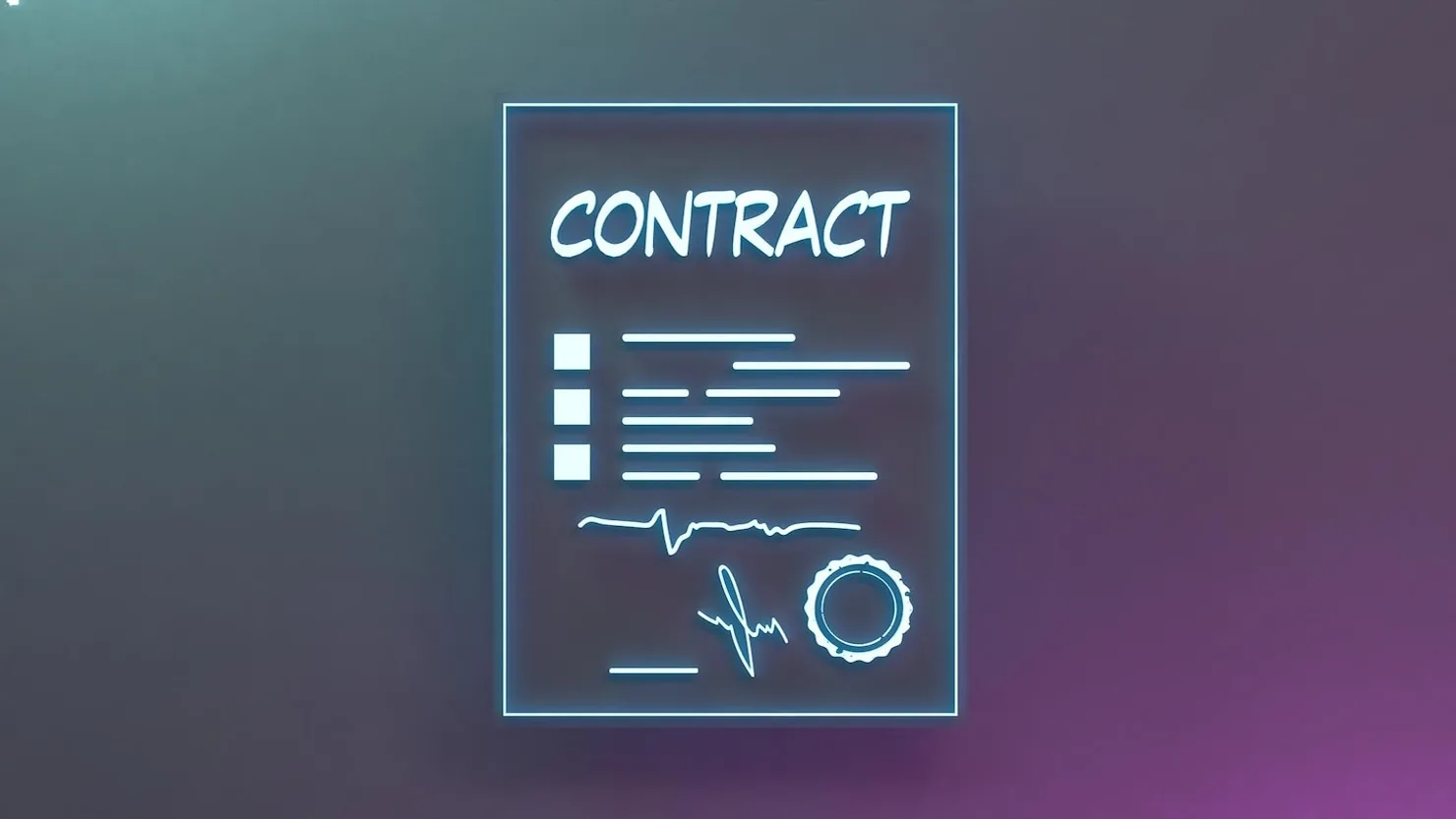- Smart Contracts: The Ultimate Guide for Beginners and Professionals
- Introduction to Smart Contracts
- What are Smart Contracts?
- Why Smart Contracts Matter in Today’s Digital Economy
- The History and Evolution of Smart Contracts
- Smart Contracts in Blockchain Technology
- Growth Across Industries
- How Smart Contracts Work
- Benefits of Smart Contracts
- Challenges and Limitations of Smart Contracts
- Real-World Applications of Smart Contracts
- Smart Contracts vs. Traditional Contracts
- Popular Smart Contract Platforms
- Security Best Practices for Smart Contracts
- The Future of Smart Contracts
- Frequently Asked Questions
- Conclusion
Smart Contracts: The Ultimate Guide for Beginners and Professionals
Introduction to Smart Contracts
In the digital era, where speed, transparency, and automation define success, smart contracts have emerged as a groundbreaking innovation. Built on blockchain technology, they are reshaping industries by offering a secure, automated, and trustless way to execute agreements. Whether you’re a beginner curious about how blockchain is revolutionizing business, or a professional seeking deeper insights, understanding smart contracts is essential.
This article provides a comprehensive guide to smart contracts—from their origins and mechanisms to benefits, challenges, applications, and future prospects.
What are Smart Contracts?
A smart contract is a self-executing agreement written in computer code. Unlike traditional contracts, which require lawyers, notaries, or intermediaries, a smart contract automatically executes once the predefined conditions are met.
For example, imagine renting an apartment through a smart contract. Instead of dealing with paperwork and waiting for approvals, the contract could release the digital key once payment is verified on the blockchain. No middleman, no delays—just seamless execution.
In essence, smart contracts combine legal concepts with technology, creating trust through mathematics and cryptography rather than human oversight.
Why Smart Contracts Matter in Today’s Digital Economy
The modern economy is increasingly digital, global, and decentralized. From online banking to supply chains spanning multiple countries, efficiency and trust are critical. Smart contracts provide:
-
Automation: No manual intervention is needed once the rules are coded.
-
Transparency: All parties can see the agreement on the blockchain.
-
Security: Transactions are protected by blockchain encryption.
-
Cost Savings: By removing intermediaries, businesses save both time and money.
For businesses and individuals alike, smart contracts are not just a trend—they’re a foundation for the future of digital transactions.
The History and Evolution of Smart Contracts
Nick Szabo’s Original Concept
The idea of smart contracts dates back to the 1990s when Nick Szabo, a computer scientist and cryptographer, introduced the term. He envisioned contracts that could be executed automatically without intermediaries, using digital protocols. At the time, blockchain technology did not exist, so his concept remained largely theoretical.
Smart Contracts in Blockchain Technology
The turning point for smart contracts came with the invention of blockchain technology, particularly with Bitcoin in 2009 and later Ethereum in 2015. While Bitcoin introduced the world to decentralized digital money, Ethereum expanded the concept by enabling programmable contracts on its blockchain.
Ethereum became the first platform to mainstream smart contracts, giving developers tools to create decentralized applications (DApps). This innovation transformed blockchain from a currency system into a programmable ecosystem with limitless possibilities.
Growth Across Industries
Over the last decade, smart contracts have moved beyond cryptocurrency. Industries such as finance, healthcare, supply chain management, and real estate have integrated them to improve efficiency and reduce fraud.
-
Finance: Automating payments, settlements, and lending.
-
Healthcare: Securing patient records and insurance claims.
-
Supply Chain: Tracking goods from production to delivery.
-
Real Estate: Simplifying property transfers and ownership validation.
Their versatility shows that smart contracts are not limited to tech enthusiasts—they are shaping the backbone of global commerce.
How Smart Contracts Work
Understanding how smart contracts function requires breaking down their technical backbone and execution process.
The Role of Blockchain in Smart Contracts
Smart contracts live on blockchains like Ethereum, Solana, or Hyperledger, which provide:
-
Immutability: Once deployed, contracts cannot be altered.
-
Decentralization: No single party controls the execution.
-
Consensus Mechanism: Blockchain nodes verify transactions to ensure accuracy.
Without blockchain, smart contracts would lose their trustless and tamper-proof nature.
Key Components of a Smart Contract
A smart contract consists of:
-
Parties Involved – The sender and receiver (e.g., buyer and seller).
-
Digital Agreement – Code specifying rules, conditions, and penalties.
-
Execution Mechanism – How the contract self-enforces once triggered.
-
Blockchain Storage – Ensures transparency and record permanence.
Execution and Automation Process
The execution follows a “if/when… then…” logic. For instance:
-
If payment is received,
-
Then ownership of the digital asset transfers automatically.
This automation eliminates disputes, delays, and reliance on intermediaries, making transactions faster, cheaper, and more reliable.
Benefits of Smart Contracts
Smart contracts bring a wealth of benefits for both individuals and enterprises.
Transparency and Trust
Since agreements are stored on public blockchains, all participants can verify transactions independently. This builds trust without third parties.
Efficiency and Speed
Traditional contracts involve multiple steps—drafting, reviewing, notarizing, and executing. Smart contracts cut down time by automating everything digitally.
Cost Reduction and Automation
By eliminating banks, brokers, and lawyers for certain processes, smart contracts save significant costs. For businesses, this translates into higher profit margins.
Security Advantages
Blockchain’s cryptographic algorithms protect smart contracts from tampering and hacking. Once deployed, contracts are virtually impossible to alter, reducing risks of fraud.
Challenges and Limitations of Smart Contracts
Despite their promise, smart contracts are not without hurdles.
Legal and Regulatory Concerns
Since laws vary globally, legal recognition of smart contracts remains inconsistent. Courts may not always consider them binding, leading to challenges in enforcement.
Coding Errors and Bugs
Unlike human contracts, coding errors can’t be easily corrected. A flawed smart contract may lead to loss of funds or vulnerabilities, as seen in high-profile hacks like The DAO attack.
Scalability Issues
Public blockchains can handle only a limited number of transactions per second. Large-scale adoption of smart contracts is often restricted by network congestion and high gas fees.
Privacy Concerns
While transparency is a benefit, it can also expose sensitive business information on a public ledger, raising confidentiality concerns.
Real-World Applications of Smart Contracts
Smart contracts have proven to be more than theory—they’re revolutionizing industries worldwide.
Financial Services and Banking
-
Automated lending and borrowing.
-
Cross-border payments without intermediaries.
-
Tokenized securities and decentralized finance (DeFi).
Supply Chain Management
-
Tracking goods from origin to customer.
-
Reducing fraud in logistics and procurement.
-
Ensuring ethical sourcing by verifying product origins.
Real Estate Transactions
-
Instant transfer of property ownership.
-
Automated rent collection.
-
Reducing paperwork in mortgages and sales.
Healthcare and Insurance
-
Storing medical records securely.
-
Automating insurance claims.
-
Reducing healthcare fraud through transparency.
Government and Public Services
-
Digital voting systems.
-
Transparent welfare distribution.
-
Land registry systems with immutable ownership records.
Smart Contracts vs. Traditional Contracts
Key Differences
Traditional contracts rely on legal language, human enforcement, and often intermediaries like lawyers or notaries. Smart contracts, in contrast, rely on computer code, blockchain enforcement, and automatic execution.
| Feature | Traditional Contracts | Smart Contracts |
|---|---|---|
| Form | Written or digital documents | Computer code |
| Enforcement | Courts or mediators | Blockchain protocol |
| Speed | Can take days or weeks | Instant execution |
| Cost | Legal and administrative fees | Reduced due to automation |
| Flexibility | Amendments possible | Immutable once deployed |
Pros and Cons of Each
Traditional Contracts – Pros:
-
Legally recognized worldwide
-
Flexible and adaptable
-
Familiar to businesses and individuals
Traditional Contracts – Cons:
-
Slower and costlier
-
Prone to disputes and fraud
Smart Contracts – Pros:
-
Fast, automated, and efficient
-
Transparent and secure
-
Cost-effective for repetitive tasks
Smart Contracts – Cons:
-
Limited legal recognition in many regions
-
Inflexible once deployed
-
Require technical expertise to develop
Both contract types will likely coexist in the future, with smart contracts handling automation and traditional contracts providing legal backing.
Popular Smart Contract Platforms
Not all blockchains are created equal. Several platforms dominate the smart contract ecosystem.
Ethereum
The pioneer in smart contracts, Ethereum introduced the Solidity programming language and a robust developer community. Despite challenges like high gas fees, Ethereum remains the most widely used platform.
Binance Smart Chain (BSC)
Known for low fees and fast transactions, BSC has become a popular choice for DeFi and decentralized applications.
Hyperledger
An open-source blockchain project by the Linux Foundation, Hyperledger focuses on enterprise use cases, offering permissioned smart contracts suitable for private companies.
Solana and Other Platforms
Solana, Cardano, Polkadot, and Tezos are rising competitors, each offering unique advantages like scalability, interoperability, and eco-friendliness.
Security Best Practices for Smart Contracts
Security remains a critical concern for smart contracts. Best practices include:
Auditing Smart Contracts
Independent security audits help detect coding flaws before deployment. Companies often hire specialized firms to review smart contracts.
Testing and Verification
Rigorous testing in sandbox environments ensures that contracts behave as expected under different scenarios.
Using Oracles Safely
Smart contracts often rely on oracles to fetch real-world data (e.g., stock prices, weather conditions). Ensuring oracle security is essential to prevent data manipulation attacks.
The Future of Smart Contracts
The potential of smart contracts is enormous, and their evolution will continue to reshape industries.
Integration with AI and IoT
Imagine AI-powered smart contracts that adapt to changing conditions or IoT-enabled contracts that trigger based on sensor data—for example, an insurance payout triggered automatically by a car crash sensor.
Global Legal Recognition
As governments recognize the efficiency of smart contracts, legal frameworks will evolve to grant them binding status, bridging the gap between code and law.
The Rise of Decentralized Applications (DApps)
Smart contracts are the building blocks of DApps—applications running on decentralized networks instead of centralized servers. From decentralized finance to gaming, DApps are pushing smart contracts into mainstream adoption.
Frequently Asked Questions
Conclusion
Smart contracts represent a paradigm shift in how agreements are formed and executed. They offer transparency, efficiency, cost savings, and trust in a way traditional contracts cannot.
While challenges remain—particularly around legal recognition, security, and scalability—the trajectory is clear: smart contracts are set to become an integral part of the global digital economy.
For beginners, they provide a glimpse into the future of automated trust. For professionals, they offer opportunities to innovate and optimize business processes.
As technology matures, the combination of blockchain, AI, and IoT will push smart contracts beyond financial systems, transforming the way humans and machines interact in every industry.




Discussion (0)